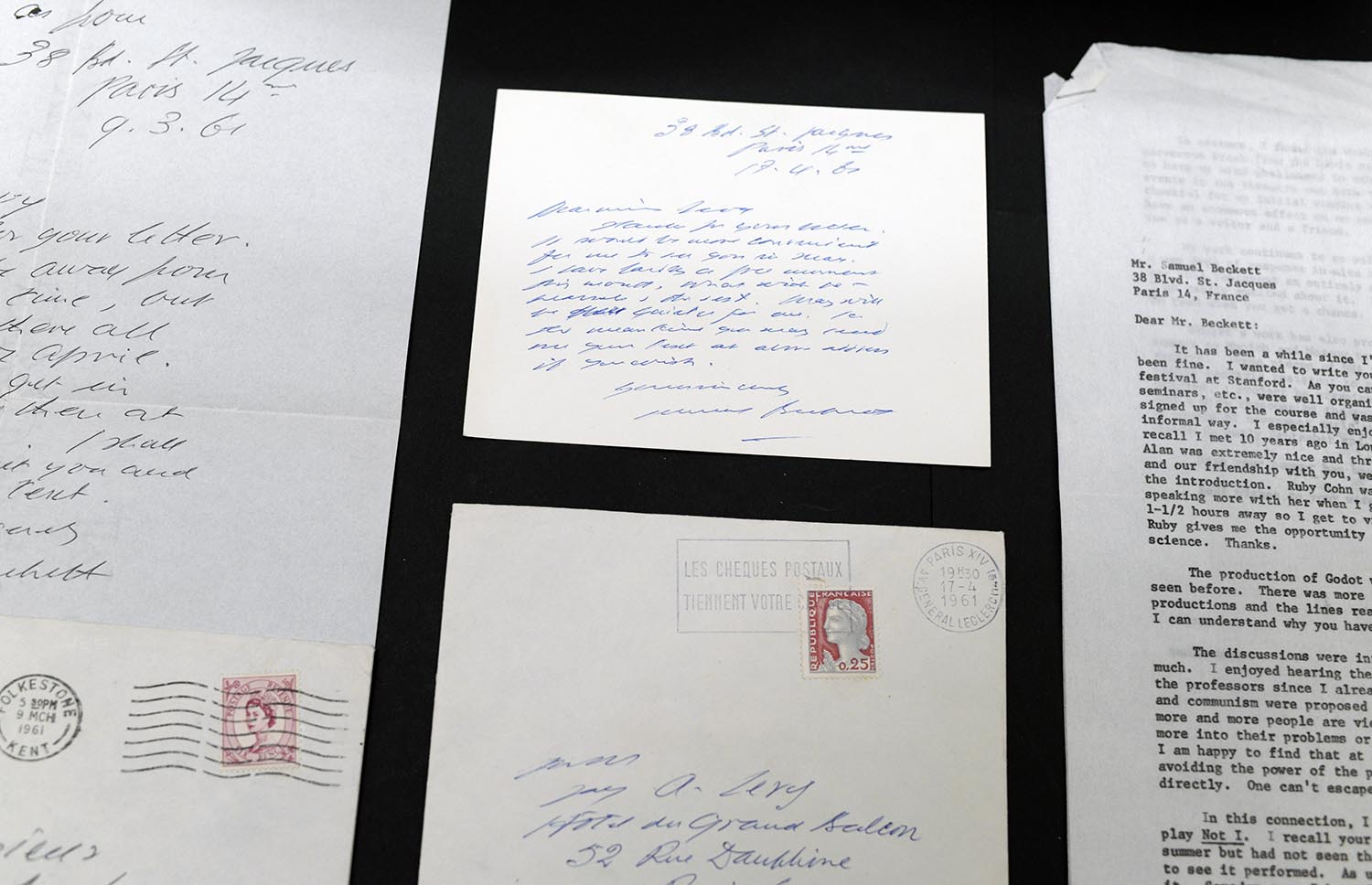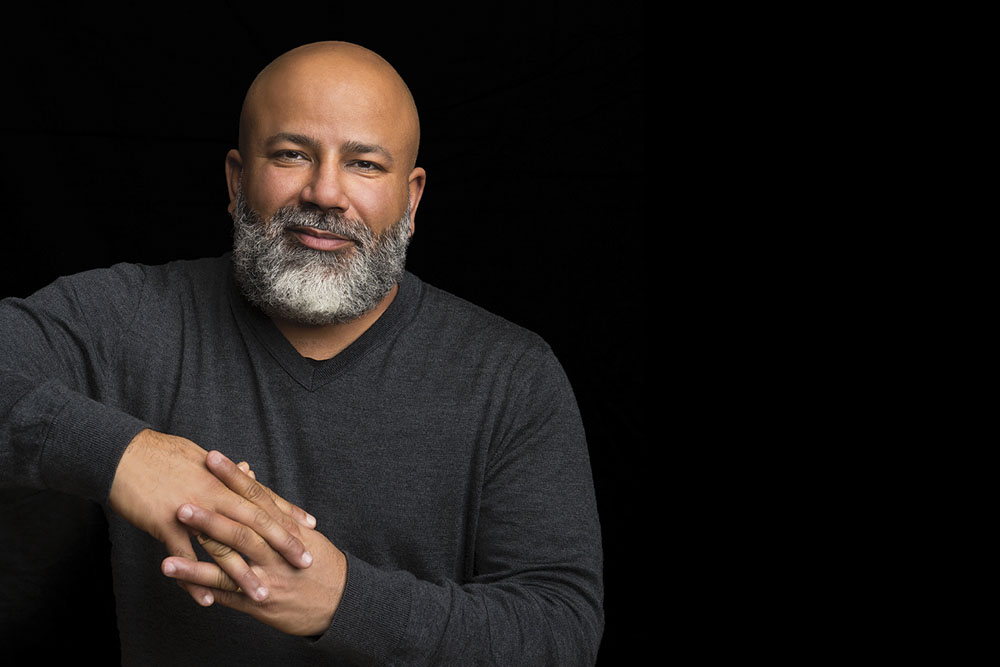The Gift of Godot

When still an undergrad biology major at Wesleyan, Jay Levy ’60, Hon. ’96, MD followed an intriguing literary reference to its famous source: literary giant Samuel Beckett. “My interactions with this wonderful genuine man, whom I first met when I was 22, opened up incredible vistas in my life,” said Levy, who noted that one of his letters was included in Lois More Overbeck’s four-volume collection of Beckett’s correspondence.
Jay A. Levy ’60, Hon. ’96 is an accomplished researcher and the University of California, San Francisco physician who discovered the AIDS virus in 1983. But medicine hasn’t been his only interest.
Levy also maintained a decadeslong correspondence with Irish novelist, playwright, and general literary giant Samuel Beckett. Wesleyan Special Collections & Archives is now the beneficiary of that friendship, with Levy and his wife Sharon donating the Levy-Beckett letters from over three decades, as well as related books, gifts, and memorabilia, last fall.
That is as it should be, says Levy, who credits Wesleyan for nurturing his wide-ranging interests, including literature, and sparking the curiosity that set him on the path to this seemingly unlikely pairing of minds. According to Levy, his connection with Beckett really began one long day when, as an undergraduate, he was awaiting the arrival of his date for Spring Weekend at Bradley Airport in 1959.
“The announcements kept reporting delays but assurances that the plane would arrive,” Levy recalled. “After some hours, a Wes student near me said, ‘This is like
waiting for Godot!’ I was curious enough (lucky for me!) to inquire, ‘What is Waiting for Godot?’ and was informed that it was a play by Samuel Beckett, an Irish writer
who was living in France. More detail indicated that it had been performed in French six years before and fit into the Theater of the Absurd.” Coincidentally Levy had just begun a French literature course on just that topic.
A few days later, Levy spoke with French professor Alex Szogyi about Waiting for Godot, and subsequently wrote a paper on the play for the course. While Szogyi
didn’t agree with Levy’s thesis—which noted religious references suggesting that “Godot” was meant to be God—he “apparently considered it sufficiently noteworthy to suggest my sharing it with Professor Mayoux at the Sorbonne (who knew Beckett) when I went to Paris to conduct biological research after graduation,” Levy said.
Levy did, in fact, share his paper with Mayoux, who then passed it along to Beckett. The playwright invited the young American scholar to his apartment. A friendship
was formed, which grew to include Levy’s twin brother, the late Stuart Levy Hon. ’98.
“It is really a delight and an honor to give my correspondence, books, and gifts from Samuel Beckett, as well as a variety of letters and articles about him to Wesleyan,”
Levy said. “After all, my introduction to Samuel Beckett began with that fateful day at Bradley Airport in 1959, when I was a junior in college. Now look at what an incredible adventure this school gave me through its education and through
its excellent teachers—a reputation I’m pleased to say still remains.”
On October 24, 2019, Levy, his wife, and family members joined Lois More Overbeck, a pre-eminent Samuel Beckett scholar at Emory University; President Michael Roth
’78; Andrew White, Wesleyan’s Caleb T. Winchester University Librarian; Professor of Theater Ron Jenkins; and Assistant Professor of French Michael Meere for a
symposium titled Homage to Samuel Beckett. The event, held in Olin Library’s Smith Reading Room and attended by students, faculty, friends, and scholars, honored
Levy’s gift to the library.
As editor of Beckett’s volumes of letters, Overbeck recalled her gentle charge to “go ’round to meet the people” with whom he had corresponded. This made “all the difference,” she said, in adding depth to her research.
“Letters are a two-dimensional trace of relationships, written in a very specific time and place, to a very specific audience,” she said. “Letters are written in an attempt
to bridge time and distance, or to mediate a disjunction of feeling. . . . As such, each one constitutes a living moment.”
“This event is the very essence of Wesleyan,” said Matthew Winn ’92, vice chair of the Alumni Association and Levy’s cousin. “Jay found a passion for something outside his field and pursued it with the same energy he approached his career. It
was also touching to see his friends and classmates here. The fact that they came is a testament to the deep and enduring relationships the University fosters.”


